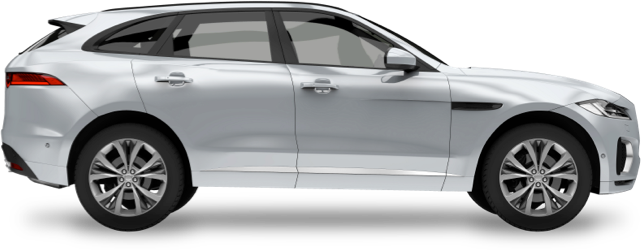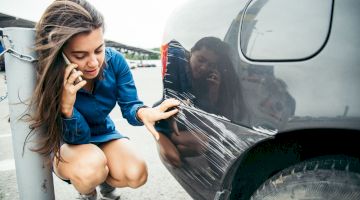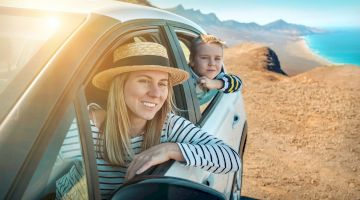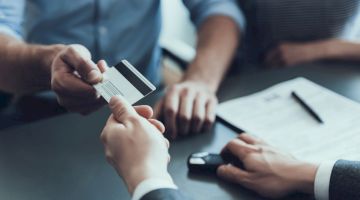- Online car rental since 2005
- Popular countries
- Popular regions
- Popular cities
- Popular airports
- Car Rental Italy
- Car Rental Spain
- Car Rental United States
- Car Rental Portugal
- Car Rental South Africa
- Car Rental France
- Car Rental Netherlands
- Car Rental Germany
- Car Rental United Kingdom
- Car Rental Greece
- Car Rental Austria
- Car Rental Switzerland
- Car Rental Croatia
- Car Rental Belgium
- Car Rental Norway
- Car Rental Ireland
- Car Rental Denmark
- Car Rental Australia
- Car Rental Canada
- Car Rental Mexico
- Car Rental Florida
- Car Rental England
- Car Rental California
- Car Rental Sicily
- Car Rental Tenerife
- Car Rental Mallorca
- Car Rental Sardinia
- Car Rental Ibiza
- Car Rental Madeira
- Car Rental Crete
- Car Rental Gran Canaria
- Car Rental Scotland
- Car Rental Malta
- Car Rental Azores
- Car Rental Corsica
- Car Rental Lanzarote
- Car Rental Fuerteventura
- Car Rental Rhodes
- Car Rental La Palma
- Car Rental Corfu
- Car Rental Amsterdam
- Car Rental Milan
- Car Rental Miami
- Car Rental Lisbon
- Car Rental Malaga
- Car Rental Porto
- Car Rental Cape Town
- Car Rental Rome
- Car Rental Alicante
- Car Rental Bergamo
- Car Rental Barcelona
- Car Rental London
- Car Rental Faro
- Car Rental Munich
- Car Rental Orlando
- Car Rental Vienna
- Car Rental Nice
- Car Rental Johannesburg
- Car Rental Geneva
- Car Rental Dublin
- Car Rental Amsterdam Schiphol Airport
- Car Rental Miami International Airport
- Car Rental Lisbon Airport
- Car Rental Malaga Airport
- Car Rental Porto Airport
- Car Rental Milan Malpensa Airport
- Car Rental Alicante Airport
- Car Rental Bergamo Airport
- Car Rental Rome Fiumicino Airport
- Car Rental Cape Town Airport - International Terminal
- Car Rental Faro Airport
- Car Rental Orlando International Airport
- Car Rental Barcelona Airport
- Car Rental Munich Airport
- Car Rental Vienna Airport
- Car Rental Bari Palese Airport
- Car Rental Nice Airport
- Car Rental Bologna Airport
- Car Rental Los Angeles International Airport
- Car Rental Dublin Airport
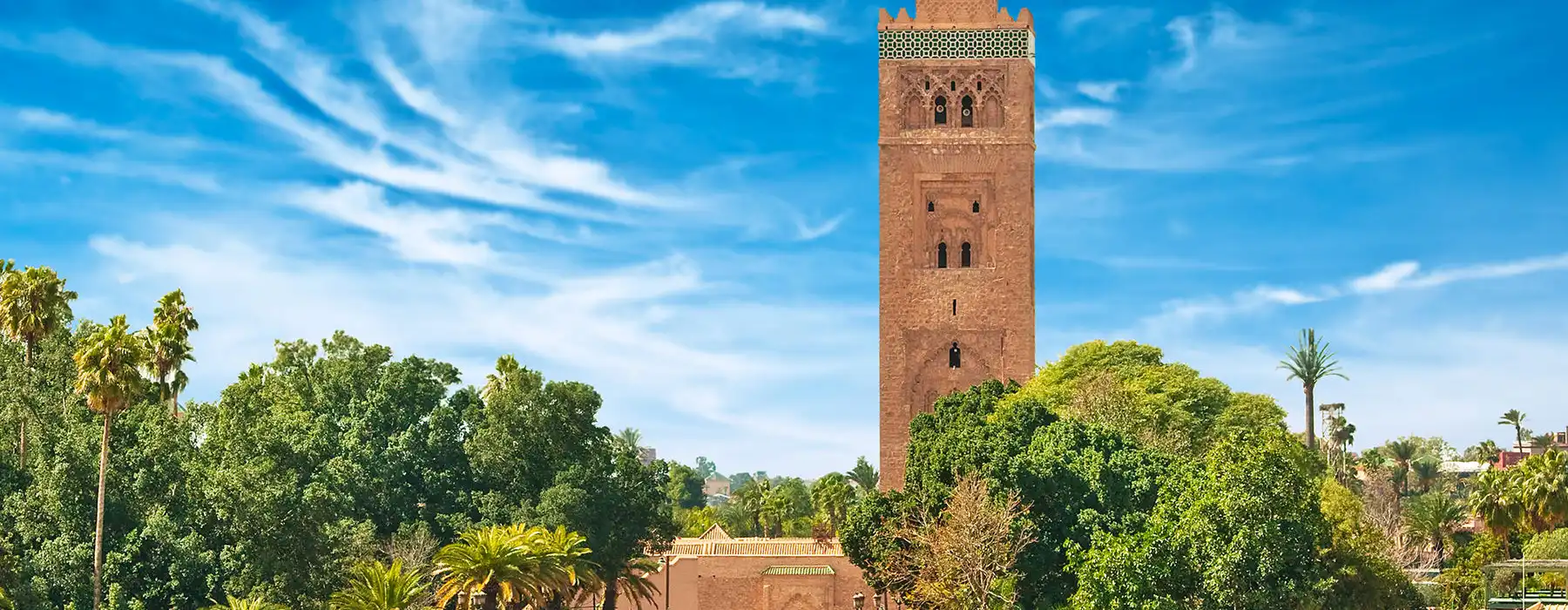
Car Rental Morocco
Save time and money. We compare the offers of car rental companies in Morocco on your behalf.
- Free cancellation Up to 48 hours prior to the scheduled pick-up time
- Best price guarantee Have you found a better price? Let us know and we will make you a better offer.
- 24000+ pick-up locations Locations around the world

Car Rental Morocco
EasyTerra Car Rental Morocco is an independent car rental comparison site. Our site compares prices from well-known car rental companies so that, as a customer, you can always reserve your car with us at a competitive rate.
Car rental offers in Morocco
Whether you're looking for a small rental car or a station wagon for the entire family, we will always have a suitable vehicle at the lowest price. Below are some examples from our selection in Morocco.

-
United rent a car From€ 4 /day -
Optimo Rent From€ 5 /day -
addCarRental From€ 6 /day

-
United rent a car From€ 4 /day -
addCarRental From€ 7 /day -
wheego From€ 7 /day

-
Location Auto From€ 10 /day -
SurPrice car rentals From€ 12 /day -
United rent a car From€ 14 /day

-
wheego From€ 7 /day

-
Location Auto From€ 7 /day -
Autounion Car Rental From€ 10 /day -
Alamo From€ 15 /day

-
Location Auto From€ 11 /day

-
Location Auto From€ 7 /day

-
Location Auto From€ 8 /day

-
Location Auto From€ 11 /day -
Autounion Car Rental From€ 14 /day -
Alamo From€ 25 /day

-
United rent a car From€ 4 /day -
Optimo Rent From€ 5 /day -
Zezgo From€ 6 /day

-
United rent a car From€ 4 /day -
Right Cars From€ 23 /day -
United rent a car From€ 109 /day

-
Location Auto From€ 10 /day -
Budget From€ 22 /day

-
United rent a car From€ 4 /day

-
United rent a car From€ 4 /day -
Thrifty From€ 14 /day -
Dollar Rent a Car From€ 14 /day

-
Location Auto From€ 12 /day

-
United rent a car From€ 4 /day -
United rent a car From€ 124 /day

-
addCarRental From€ 6 /day -
Location Auto From€ 9 /day -
Thrifty From€ 15 /day

-
SurPrice car rentals From€ 13 /day -
Autounion Car Rental From€ 14 /day -
United rent a car From€ 14 /day

-
United rent a car From€ 5 /day -
Optimo Rent From€ 6 /day -
addCarRental From€ 7 /day

-
United rent a car From€ 5 /day -
Autounion Car Rental From€ 14 /day -
Hertz From€ 40 /day

-
Location Auto From€ 13 /day -
Europcar From€ 26 /day

-
United rent a car From€ 5 /day -
Optimo Rent From€ 7 /day -
SurPrice car rentals From€ 12 /day

-
addCarRental From€ 7 /day -
Zezgo From€ 9 /day -
Autounion Car Rental From€ 18 /day

-
Location Auto From€ 14 /day

-
Location Auto From€ 9 /day -
AIR CAR From€ 16 /day -
Europcar From€ 20 /day

-
Location Auto From€ 9 /day -
Green Motion From€ 13 /day -
AIR CAR From€ 16 /day

-
United rent a car From€ 14 /day -
SurPrice car rentals From€ 15 /day -
Autounion Car Rental From€ 15 /day

-
United rent a car From€ 9 /day -
SurPrice car rentals From€ 19 /day -
Location Auto From€ 35 /day

-
United rent a car From€ 9 /day -
Alamo From€ 18 /day -
Enterprise From€ 20 /day

-
SurPrice car rentals From€ 17 /day -
Green Motion From€ 45 /day

-
United rent a car From€ 9 /day -
Location Auto From€ 22 /day -
Alamo From€ 32 /day

-
United rent a car From€ 11 /day -
DiRENT a car From€ 17 /day -
Autounion Car Rental From€ 20 /day

-
DiRENT a car From€ 18 /day -
United rent a car From€ 21 /day -
SurPrice car rentals From€ 26 /day

-
United rent a car From€ 13 /day -
DiRENT a car From€ 17 /day -
SurPrice car rentals From€ 20 /day

-
SurPrice car rentals From€ 13 /day -
Green Motion From€ 18 /day

-
United rent a car From€ 20 /day -
Alamo From€ 37 /day -
Enterprise From€ 37 /day

-
United rent a car From€ 15 /day

-
Autounion Car Rental From€ 16 /day

-
Autounion Car Rental From€ 19 /day

-
Autounion Car Rental From€ 18 /day -
OK Mobility From€ 24 /day

-
Autounion Car Rental From€ 21 /day

-
Autounion Car Rental From€ 19 /day

-
Dollar Rent a Car From€ 27 /day -
Hertz From€ 30 /day -
Thrifty From€ 30 /day

-
AIR CAR From€ 23 /day

-
Dollar Rent a Car From€ 23 /day -
Thrifty From€ 25 /day -
Hertz From€ 27 /day

-
Dollar Rent a Car From€ 28 /day -
Thrifty From€ 29 /day -
Hertz From€ 31 /day

-
Autounion Car Rental From€ 32 /day

-
Dollar Rent a Car From€ 32 /day -
Thrifty From€ 33 /day -
Hertz From€ 36 /day

-
Autounion Car Rental From€ 34 /day

-
Green Motion From€ 37 /day

-
Dollar Rent a Car From€ 48 /day -
Thrifty From€ 49 /day -
Hertz From€ 54 /day

-
Dollar Rent a Car From€ 52 /day -
Thrifty From€ 54 /day -
Hertz From€ 58 /day

-
Hertz From€ 49 /day

-
United rent a car From€ 51 /day -
Dollar Rent a Car From€ 54 /day -
Thrifty From€ 55 /day

-
Dollar Rent a Car From€ 34 /day -
Thrifty From€ 35 /day -
Hertz From€ 41 /day

-
Thrifty From€ 39 /day -
Dollar Rent a Car From€ 40 /day -
Hertz From€ 45 /day

-
Hertz From€ 41 /day

-
Hertz From€ 46 /day

-
Dollar Rent a Car From€ 46 /day -
Thrifty From€ 50 /day -
Hertz From€ 55 /day

-
United rent a car From€ 51 /day -
OK Mobility From€ 142 /day

-
Dollar Rent a Car From€ 52 /day -
Thrifty From€ 56 /day -
Hertz From€ 58 /day

-
United rent a car From€ 51 /day -
Europcar From€ 98 /day -
Advantage Rent a Car From€ 108 /day

-
United rent a car From€ 52 /day -
United rent a car From€ 155 /day

-
United rent a car From€ 13 /day -
SurPrice car rentals From€ 20 /day -
United rent a car From€ 125 /day

-
United rent a car From€ 13 /day -
United rent a car From€ 124 /day

-
United rent a car From€ 21 /day -
United rent a car From€ 131 /day

-
United rent a car From€ 21 /day -
SurPrice car rentals From€ 26 /day -
United rent a car From€ 132 /day

-
Budget From€ 128 /day

-
Budget From€ 157 /day

-
United rent a car From€ 51 /day -
Green Motion From€ 61 /day -
AIR CAR From€ 86 /day

-
United rent a car From€ 51 /day -
OK Mobility From€ 142 /day -
United rent a car From€ 156 /day

-
Dollar Rent a Car From€ 61 /day -
Hertz From€ 65 /day

-
United rent a car From€ 51 /day -
SurPrice car rentals From€ 66 /day -
DiRENT a car From€ 72 /day

-
United rent a car From€ 52 /day -
United rent a car From€ 155 /day

-
SurPrice car rentals From€ 66 /day -
Europcar From€ 101 /day -
Advantage Rent a Car From€ 135 /day

-
United rent a car From€ 56 /day -
DiRENT a car From€ 71 /day -
Sixt From€ 84 /day

-
Dollar Rent a Car From€ 57 /day -
Hertz From€ 61 /day

-
SurPrice car rentals From€ 73 /day

-
OK Mobility From€ 27 /day

-
OK Mobility From€ 29 /day

-
United rent a car From€ 16 /day -
Autounion Car Rental From€ 20 /day -
Green Motion From€ 21 /day

-
U-Save Auto Rental From€ 22 /day -
AIR CAR From€ 24 /day -
Autounion Car Rental From€ 25 /day

-
United rent a car From€ 23 /day -
Dollar Rent a Car From€ 25 /day -
DiRENT a car From€ 28 /day

-
Autounion Car Rental From€ 23 /day -
Sixt From€ 50 /day -
Location Auto From€ 52 /day

-
Thrifty From€ 30 /day -
Hertz From€ 30 /day

-
Hertz From€ 24 /day -
Thrifty From€ 24 /day

-
Dollar Rent a Car From€ 25 /day -
Thrifty From€ 25 /day -
Hertz From€ 34 /day

-
Dollar Rent a Car From€ 30 /day -
Thrifty From€ 31 /day -
Hertz From€ 41 /day

-
Green Motion From€ 25 /day -
Payless Car Rental From€ 25 /day -
Avis From€ 32 /day

-
Green Motion From€ 45 /day
Popular cities in Morocco
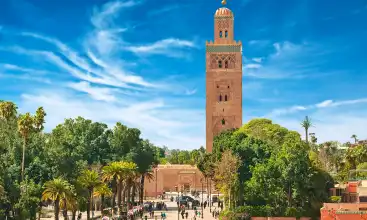
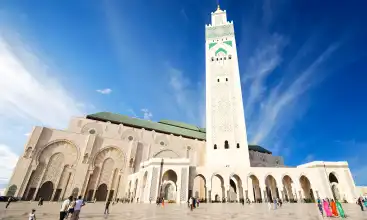
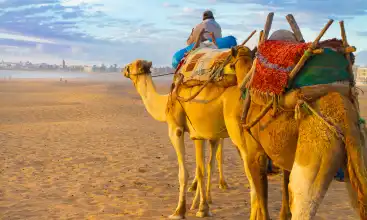
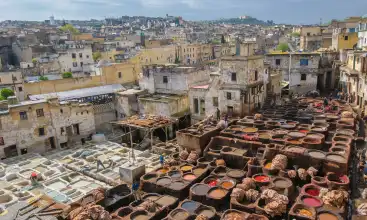
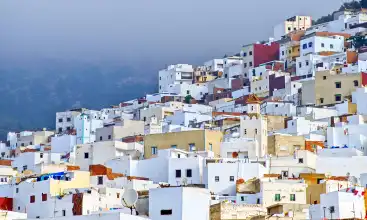
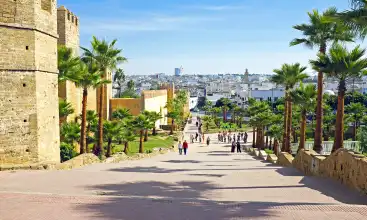
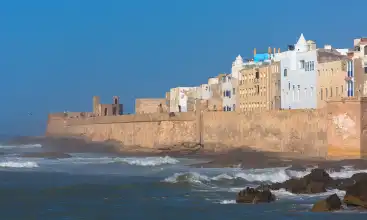
Popular rental locations in Morocco
-
Car Rental Marrakech AirportFrom
€ 4 /day -
Car Rental Casablanca Mohammed V AirportFrom
€ 4 /day -
Car Rental Agadir Al Massira AirportFrom
€ 4 /day -
Car Rental Fez Saiss AirportFrom
€ 4 /day -
Car Rental Tangier AirportFrom
€ 4 /day -
Car Rental Rabat AirportFrom
€ 4 /day -
Car Rental Essaouira AirportFrom
€ 11 /day -
Car Rental Oujda AirportFrom
€ 12 /day
Useful tips for a well-prepared trip
Which insurance should I choose, and what's the deal with the deposit? Read our articles with useful information and tips to ensure you choose the right rental car for you.
Car rental locations in Morocco
EasyTerra Car Rental compares rental car prices at the following destinations

Location information for Morocco
Morocco is best explored by rental car. EasyTerra Car Rental has over 23 pick-up locations in Morocco. This means there is always a pick-up location close to your destination.
Most popular car hire locations in Morocco
Introduction
Morocco lies on the northern coast of Africa. The amount of inhabitants is approximately 34 million. Morocco is an Arabic kingdom with strong Mediterranean influences. The capital of the country is Rabat. In this city, with over 1.7 million inhabitants, the government resides.
Moroccans are nearly all Muslim. The Islam is also the state religion. An important part of the Moroccan population is from Berber descent. Long before the arrival of the Arabs, this people lived in present-day Morocco.
Apart from the sea, Morocco also has mountains and even a bit of desert. The landscapes are often marvelous. Most cities are located near the coast. Casablanca, Agadir and Tétouan are all coastal towns with their separate attractions. Many of the sites in Moroccan cities are on the UNESCO World Heritage List. Meknes, Marrakech, Rabat and Fez for example, are known as the four Royal Cities. A visit to their medinas (the old city centers) and souqs (bazars) will stimulate your senses because of the bustling people and the scent of spices.
History
The first signs of habitation in present-day Morocco go back to the Neolithic period. Around eight thousand BC the Capians inhabited the area of the Maghreb. These people lived primarily from hunting. The landscape looked differently then. It was less arid and in higher areas there were forests like the ones we now find in Mediterranean regions like Italy and Greece.
Around 2400 BC the Berbers came to Morocco. Their civilization stretched from the Atlantic Ocean in North Africa to the Siwa oases in northwest Egypt. To the south they inhabited the land down to the river Niger. At the time of their arrival agriculture came to Morocco. From that moment on crops were cultivated in Morocco, which was then called Mauretania.
Centuries later, in the classical period, Morocco became a trading colony of the Phoenicians. This people came from the area that is now known as Lebanon. The height of Phoenician maritime power lay between 1200 and 800 BC. Around 1200 the Phoenicians founded a trading post here. After the collapse of Carthage in 146 BC Morocco became part of the Roman Empire. When this empire also declined in the fifth century AD and eventually collapsed, Vandals, Visigoths and Byzantine Greek conquered the area. However, the Berber people in the mountains held out to the intruders. The higher regions of Morocco stayed in the hands of the original inhabitants.
During the seventh century the Islam quickly made its way to North Africa. In 683 the Umayyads conquered Morocco. General Uqba ibn Nafi gave the region the name Maghreb al Aqsa: the Far West. It took only one century to Islamize the region. Until today Morocco remains an Islamic country.
The Berber people were influenced by Arabic culture. They adopted the religion and many customs. During the eleventh century the Berber tribes dethroned the Arabs and founded their own dynasties. The Almoravids, Almohads and Marinids successively ruled over Morocco. Eventually the Sa'adi dynasty had power over Morocco, the northwest of Africa and large parts of the Iberian Peninsula.
In the seventh century the Arab Alawites replaced the Sa'adi dynasty. During that period the empire had weakened due to troubles between Spain and the Ottoman Empire. The empire persisted under Alawite rule. It lost some land, but remained prosperous.
The Ottomans were chased away from Algeria by the French in 1830. The Algerian leader Abd El Kader was backed by the Moroccans in his revolt against the French. At the beginning of the twentieth century, this led to an agreement of France, Great Britain and Spain to divide Morocco in three parts. The area around Tangier became an international zone. Other areas became French or Spanish.
During the twenties of the last century a revolt arose among the inhabitants of the Rif against their oppressors as well as against the Moroccan commanders who submitted to the colonists. The revolt was crushed.
In 1934 Morocco eventually came under French jurisdiction. Moroccan soldiers fought under the French general De Gaulle during World War II. In addition to this, in 1943 the United Independence Party (Istiqlal) was established by nationalists. The party fought for an independent Morocco led by King Mohammed V. But France exiled Mohammed V and made Mohammed ibn Arafa the new king of Morocco.
The Moroccan people opposed these new measures heavily. Eventually, the new king had to flee to Tangier and Mohammed V returned. In 1955 he became king of Morocco and the year after Morocco declared its independence from France. Treaties were signed with Spain that assured the recognition of Morocco's independence by this country. The Spaniards however, kept their rule over the northern enclaves Ceuta and Melilla, the southern enclave Ifni and the Western Sahara.
When Morocco entered the United Nations in 1956, Spain was forced to hand over the Western Sahara and Ifni. But Spain decided differently. It decolonized Ifni, but held on to the Western Sahara.
In 1961 King Mohammed V passed away. His son Hassan II succeeded him. His period of office started turbulent and would largely remain that way. In 1963 conflicts arose between Morocco and Algeria. The war was called 'War of Sands'. The War of Sands ended in 1964. The years '71 and '72 were marked by coups. They failed however and King Hassan II could keep his position. In 1976 Morocco regained control over the Western Sahara. Spain decolonized this region.
In 1999 the king died. Power went on to his son Mohammed VI. He tries to modernize the country. Attention is paid to an improvement in the position of women. Additionally, the position of the Berber population, who have been discriminated against ever since the Arabization of Morocco, is improved.
Society and culture
The main part of the Moroccan people lives east of the Atlas mountain range. Approximately three quarters of the Moroccans are of Berber descent. Half of them are arabized. The Berber were the first inhabitants of North Africa. Their culture dates from before 2400 BC. Besides Morocco, they also live in Algeria and Libya. Many Berber people emigrated to European countries such as The Netherlands, France and Belgium.
Of old, a small group of Jews lives in Morocco. Their number is decreasing, principally because many Jews emigrate to Israel.
More than half of the Moroccans live in the cities. A steady migration takes place from the country and the mountains to the urban parts of Morocco.
The official language taught in Moroccan schools is Standard Arabic. This language was introduced in Morocco by the Arabs during the seventh century. Moroccans speak a dialect of this language. There are several variants, depending on the region. In cities the language became influenced by Andalusian. In the northwest a dialect is spoken that is related to the mountain regions. The Bedouin dialect is spoken on the plains at the Atlantic Ocean. Hassani is heard in some parts of the Sahara. Berber languages like the Rif language are also part of the range of languages spoken in Morocco. French is the second important language in public life.
Nearly all Moroccans are Sunnite Muslims. One percent of the population is Christian and a small group of Jews lives in Morocco. They comprise 0.2 percent of the population.
Political situation
Morocco has been an independent state since 1956. The country is a monarchy. The present head of state is King Mohammed VI. He has the power to dissolve the government. Apart from being the head of state, kings of Morocco are also Amir al-muminin: Commander of the faithful. As such he has a moral and spiritual role with regard to the Muslims.
The Moroccan parliament has had a two chamber system since 1963. It consists of the House of Deputies and a house of Councilors. Abbas El Fassi has been prime minister of the country since 2007. The primary political and royalist' parties of Morocco are the centre right Union Constitutionelle, the RNI, the PND and the Mouvement Populaire. Prominent opposition parties are the Istiqlal, de USFP and the UNFP. The Islamic party Adl wa Lihsane is banned.
Morocco is divided into 39 provinces. The country has the status of an associated member of the European Union.
Economy
Morocco is still characterized as a development country. Nevertheless, Morocco has a fairly stable economy. The main trading partner of Morocco is France. One of the two main sources of income is the extraction of phosphate. Phosphate is mainly found in the Western Sahara.
Beside this, the agricultural sector is very important. Morocco is one of the leading producers of cannabis in the world. Especially the north profits from the cultivation and trade of this product. Morocco is also the world's largest exporter of almonds.
Fishery is important as well. Morocco has the largest fish market in Africa. In exchange for economic aid European ships can sail the Moroccan waters to fish.
Casablanca is the economic heart of the country. Tangier, in the north of Morocco, is an emergent industrial centre.
The tourist sector has been a main employer for years. This source of income grows substantially.
Many Moroccans left the country during the fifties and sixties of the last century, to become immigrant workers in countries such as the Netherlands, Belgium and France. Many of them never returned to Morocco. Presently the second generation of the original guest workers lives in these countries.
The currency of Morocco is the Dirham.
Geography and climate
Morocco occupies 446.550 square kilometers. This North African country is bordered by Algeria to the east and Mauritania to the south. The border with Algeria has been closed since 1994. In the north Morocco borders on the Strait of Gibraltar. The Mediterranean Sea and the Atlantic Ocean border the country as well.
In the north of Morocco, bordering on the Mediterranean Sea lies the 350 kilometers long Rif mountain range. These mountains stretch from west to east. The Rif mountain range is a low mountain range. The highest peak is the Jabal Tidiquin with 2448 meters.
In the Atlas Mountains one can find rugged cliffs, lakes, rivers and forests. The rough parts are located in the High Atlas with peaks reaching four thousand meters. In the Middle Atlas one can find less extreme landscapes adorned with cedars and waterfalls.
The southeast of Morocco is primarily occupied by the Sahara. This desert is the world's largest hot desert and stretches over nine million square kilometers.
At the Mediterranean Sea one finds a fertile area that is extensively cultivated. Approximately twelve percent of Morocco is forested.
In general the Moroccan climate is Mediterranean with dry summers and mild winters. The Atlas Mountain range stretches over Morocco, Algeria and Tunisia and makes the weather side fertile because of the clouds that stay there. The lee lies in the so called rain shadow with considerably less rainfall. The lee of Morocco lies in the east and southeast.
Traffic and infrastructure
In Morocco toll is levied on highways. The maximum speed is 120 km/h. All big cities such as Rabat, Marrakech, Tangier, Fez and Casablanca, are connected to each other by highways. The condition of the Moroccan roads is reasonable. Nearly all roads are asphalted, with a hole here and there.
There are fourteen commercial airports in Morocco. International airports like Casablanca Anfa Airport and Casablanca Mohammed V Airport connect Morocco to Europe, Asia and the Middle East. From the airport of Tangier and from Agadir Al Massira Airport, Fez Saiss Airport and Marrakech Airport, one can fly to various destinations in- and outside Morocco.
ONCF links most cities by means of its efficient train and bus network. The trains are fast and comfortable. Travelling by bus is also pleasant, not only between cities, but in the city as well.
Food and drink
The Moroccan cuisine is extensively varied. Arabic, Berber, Spanish, Middle Eastern and Mediterranean influences are some of the many cultures that added their ingredients to the Moroccan dishes. Cinnamon, cumin, pepper, ginger, saffron and turmeric are much used spices. These are used to season the meat and vegetables to taste. Moroccans eat mostly chicken and lamb.
A number of famous Moroccan dishes for example are couscous, harira, and tajine. Couscous is very popular, not only in Morocco any more but also in Western countries. It consists mainly of semolina.
Harira is a soup traditionally eaten during Ramadan. Important ingredients to make harira are lentils, chickpeas and tomatoes. It's a spicy soup with parsley, paprika and coriander.
The tajine is not so much a dish as the pot in which dishes are prepared. The tajine has a characteristic appearance. The dish is closed with a cone-shaped top. Fish, lamb or chicken can be stewed inside the tajine with spices like cinnamon, ginger and cumin.
Moroccans drink a lot of tea with fresh mint.
Time zone
The time zone in Morocco is GMT/UTC +0.
Accommodation
Hotels in Morocco are classified by a star system. Especially in tourist places like Casablanca, Marrakech, Agadir and Fez hotels can be found in all categories of comfort and luxury.
In bigger cities one can find some hostels and Bed & Breakfasts as well. Both kinds of accommodation are not available in abundance. Most cities have one or maybe a few hostels.
There are a lot of apartments for rent. Houses and villa's can be rented for the duration of a vacation, but also for a longer period.
Campers can find sites to put up their tent in Morocco. Not only along the coasts of the Mediterranean Sea and the Atlantic Ocean, but also in the Atlas Mountains and even the Sahara there are places to camp. The camp sites are open the entire year. Those who love luxurious accommodation while camping did not come to the right place. Especially the sanitary facilities leave much to be desired.
External sources
For more information about Morocco we recommend Google and the following sources:
Practical information
-
CurrencyMoroccan dirham
-
Driving directionRight
-
City speed limit60 km/h
-
Freeway speed limit100 km/h
-
LanguageArabic
-
Popular car categoryEconomy
What most people want to know
The following questions and answers are a selection of the most popular questions. If you do not find the answer to your question, have a look at the Frequently Asked Questions page or contact us.
- Avis
- Europcar
- Sixt
- CarQ
- Enterprise
- Alamo
- Thrifty
- Budget
- Keddy By Europcar
- SurPrice car rentals
- Dollar Rent a Car
- AIR CAR
- Autounion Car Rental
- Location Auto
- OK Mobility
- Optimo Rent
- GLOBAL Rent-a-Car
- Hertz
- Payless Car Rental
- U-Save Auto Rental
- Carwiz rent a car
- Abbycar
- Street Rent a Car
- InterRent
- OtoQ
- DiRENT a car
- FireFly Car Rental
- Global Rent a Car
- Goldcar
- wheego
- United rent a car
- Green Motion
- Routes
- Right Cars
- addCarRental
- Zezgo
- ACE Rent A Car
- Economy Rent a Car
- DRIVUS
- Acarent
- Goldcar Key'n Go
- Nextcar
- Exer Rent A Car
- Cargini
- National Car Rental
- Advantage Rent a Car
- Flizzr
- Red Spot Car Rental
- Ace Rental Cars
- NÜ Car Rentals
